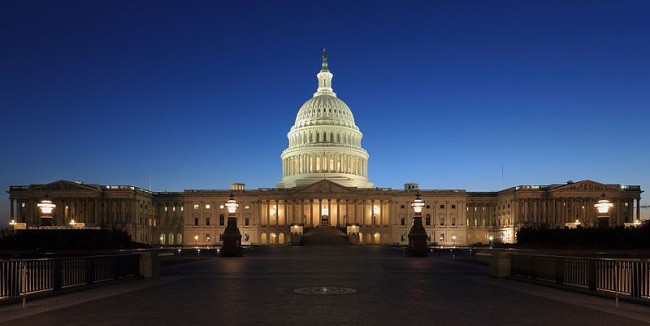Three College of William and Mary professors have teamed up with polling-aggregate company TargetSmart to create and provide voter-intent and opinion polls leading up to the Nov. 8 general election.
Government professors Jaime Settle, Dan Maliniak and Ron Rapoport are working with TargetSmart in an effort to provide accurate, diversified voter data for the upcoming election season. The project, which will conduct polling and collect data in the battleground states of Ohio, Florida and possibly Pennsylvania, will observe statewide opinions on candidates and expected voter turnout.
TargetSmart has previously been chosen by Pew Research as the baseline for a study on voting habits. According to Rapoport, TargetSmart was competing against multiple companies to provide the data to Pew.
“[Pew] felt that TargetSmart did the best work … they have a very strong reputation,” Rapoport said. “Pew’s selection of them is very, very impressive.”
Ranging from the national presidential race to the U.S. senatorial races, these upcoming elections will be covered by the College’s TargetSmart team.
The primary focus of the partnership will be to analyze the presidential race between Hillary Clinton and Donald Trump by conducting opinion polls on the candidates and providing public data on voter turnout to campaigns. The team will also focus on senatorial campaigns, including the re-election campaigns of Florida Republican Marco Rubio and Ohio Republican Rob Portman, providing data on a state level about how those races might turn out.
With regards to polling, the team will provide information on voter history and the likelihood to vote in relation to aspects such as gender, race and age, showing trends among each of those categories and candidate preference.
The first step of the project’s data collection involves finding out what the current electorate will look like, on which TargetSmart has already recorded and found data. Citizens’ voter history is public information, so data companies are able to find public records and sift through bytes of data for analysis. According to Maliniak, having past voter history data can help determine trends in what the future electorate will look like, giving a better idea of the overall poll makeup.
TargetSmart has compiled all these data on peoples’ voting history and linked it to a variety of data that are publicly available or that they’ve been able to collect, which allows us to get a better model of what the electorate will look like, what turnout will look like as well, and potentially making it easier to better calibrate the poll to best match what the actual turnout will look like,” Maliniak said.
“[TargetSmart has] compiled all these data on peoples’ voting history and linked it to a variety of data that are publicly available or that they’ve been able to collect, which allows us to get a better model of what the electorate will look like, what turnout will look like as well, and potentially making it easier to better calibrate the poll to best match what the actual turnout will look like,” Maliniak said.
Next, the team will collect information on voter intent — whether people plan to vote in the upcoming election or not.
This is done with internet surveys and phone calls, allowing individuals to say whether or not they plan to vote on Super Tuesday. Internet surveys will form the bulk of self-reported information by potential voters, with phone calls helping to supplement areas where information is low in order to have a more representative sample for the study.
“It’s cheaper to go via the internet … so we’re going to try to get as much of the group as we can that way and supplement in areas that we’re low with phone calls,” Maliniak said.
The data collected will not be restricted to individuals working with the project. Government students of the College will be able to access and model with these responses, bringing real data into the classroom.
“We made the deal that the data would be available for students to use in classes or independent study,” Rapoport said.
The professors said that they expect this relationship to create better options for students, particularly those interested in the field of political polling and analysis. TargetSmart pollster Matt Taverna ’04 works on the team and said that he hopes the partnership between the College and TargetSmart continues to develop and present new prospects for work.
I’m not the only William and Mary alum here, either, so the school doesn’t have a lack of reputation among people in the company,” Taverna said.
“I’m not the only William and Mary alum here, either, so the school doesn’t have a lack of reputation among people in the company,” Taverna said. “I’d love to see how this relationship grows and gives new opportunities to students at the College.”
Taverna plans to come visit the College sometime in the near future to help TargetSmart form a connection with the student body.
The first sets of polling data are projected to be available before the Sept. 26 presidential debate.

